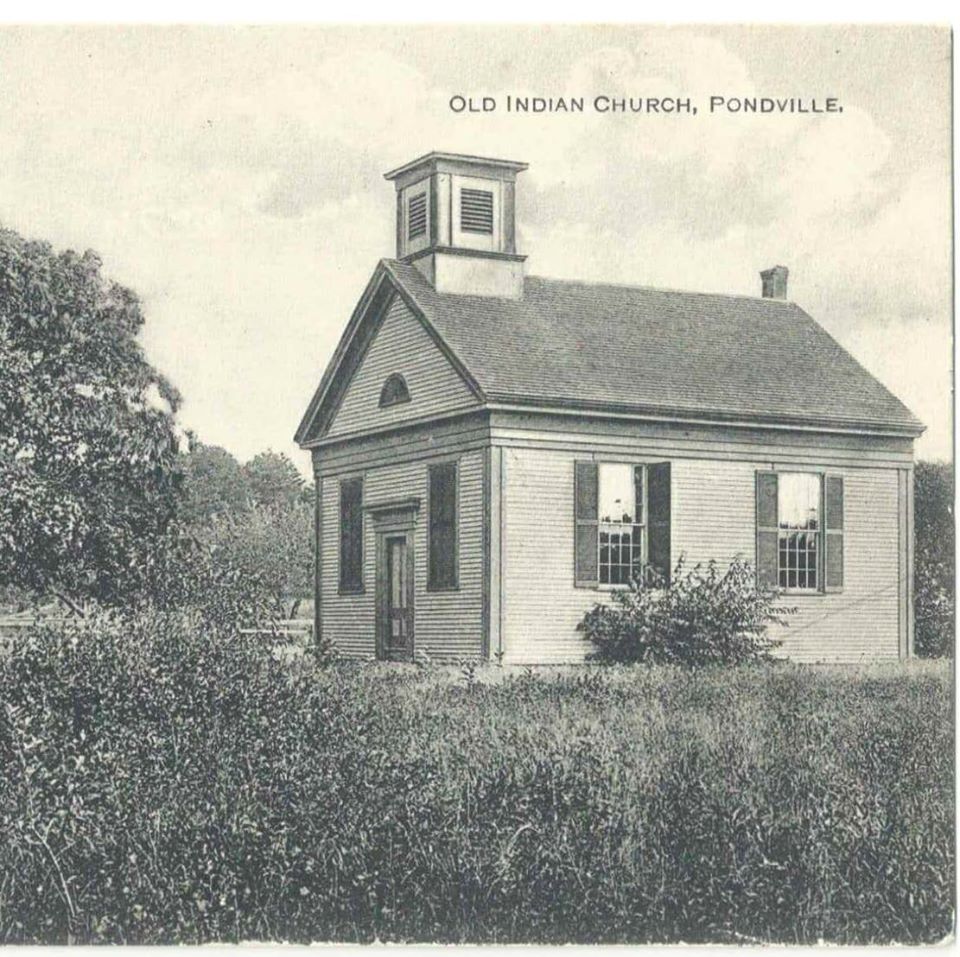Herring Pond Wampanoag WINS Bid for Return of Ancient Burial Ground
February 17, 2020

By Emily Clark
eclark@wickedlocal.com
Posted Oct 16, 2019 at 6:00 AM
In the spring of 1840, the family of Dina Chummuc gathered around a little plot off Long Pond Road in Cedarville, mourning the loss of the 19-year-old Herring Pond Wampanoag
PLYMOUTH – In the spring of 1840, the family of Dinah Chummuc gathered around a little plot off Long Pond Road in Cedarville, mourning the loss of the 19-year-old Herring Pond Wampanoag. What she died of remains a mystery. In time, other Wampanoags would be laid to rest here. Chummuc would join Webquish and Hirsch family members buried on the plot, which would come to be known as Dinah’s Path.
For the first time since the 1850 division of land, this piece of sacred Native American land has been returned to the Herring Pond Wampanoag.
“This is a historical moment for the town of Plymouth,” Herring Pond Wampanoag Tribe Chairlady Melissa Ferretti said. “It was a significant time for the tribe and the first time any property has been returned. A woman said to me: ‘This is a historic moment not just for Plymouth but for every native community. It sets a precedent because you were given your sacred site back.’”
But it wasn’t exactly given, in the end.
The Herring Pond Wampanoag tribe had to pay for it.
A legal snag in the transfer of the Herring Pond Wampanoag burial ground from the town to the tribe’s nonprofit meant it had to be put out to bid first, according to town officials. The upshot of that was a bidding process that legally required the town to accept the highest bid, regardless of whether it happened to be the Herring Pond Wampanoag tribe. Fortunately, the tribe won the bid and managed to buy the burial ground for $507.
When asked, state Sen. Vinny deMacedo, R-Plymouth, acknowledged that he donated $500 to the cause, as tribal members were worried they could have been outbid for the site, in spite of the fact that their ancestors are the ones buried there.
“I’ve known these people for years and years,” deMacedo said. “It’s a big deal. The town did everything it could to find a solution.”
In the autumn of 2018, Town Meeting voted to transfer this six-acre parcel burial ground off Long Pond Road in Cedarville back to the Herring Pond Wampanoag through its nonprofit group by the same name. The town gained control of the property when it took the land in tax title.
Massachusetts General Law Chapter 114 Section 17 reads: “A town shall not alienate or appropriate to any other use than that of a burial ground, any tract of land which has been for more than one hundred years used as a burial place; and no portion of such burial ground shall be taken for public use without special authority from the general court. ‘Burial place,’ as referred to in this section, shall include unmarked burial grounds known or suspected to contain the remains of one or more American Indian.”
The tribe argued that Town Meeting gave them the burial ground, which actually belongs to the Herring Pond Wampanoag tribe, as it has from the beginning. Ferretti and others of her tribe are descendants of the people buried in these graves.
But attorneys can be sued for malpractice, and without a firm legal foundation for the transfer, the town’s attorneys advised the town to take the precaution of a bidding process. The only possible alternative could have been a home rule petition to the state, but this could have involved an expensive and lengthy procedure.
Ferretti said she and the Herring Pond Wampanoag tribal members and council are grateful to Director of Planning Lee Hartmann, Planning Technician Patrick Farah, deMacedo and others who went above and beyond to help them secure this sacred site. She said she and other tribal members are relieved beyond measure that the hurdles have been cleared and the tribe’s nonprofit now owns the site outright.
Hartmann and she visited the registry of deeds last week to put the finishing touches on the transfer, Ferretti added.
“I felt almost overwhelmed with joy,” she said, noting that Herring Pond Wampanoag tribe member Kathryn “Kitten” Hunt as well as the Herring Pond Wampanoag Council and tribe in general spearheaded this project.
“We want to thank Cultural Anthropologist Professor Dr. Amy Den Ouden of UMASS-Boston for her continued undying support and commitment to the self-determination of the Herring Pond Wampanoag community and so much more,” Ferretti added. “I’d also like to mention (state Rep.) Matt Muratore and Ginny Davis and the Plymouth Antiquarian Society for their continued support as well.”
The next step is to consult with the Commission of Indian Affairs and state archeologist to determine best practices to incorporate what’s known as traditional ecological knowledge and stewardship of the site, Ferretti said. This involves a thorough analysis of the plant and wildlife of the parcel and how to protect it and preserve that in tandem with preserving and protecting the actual graves.
It’s time to move on from negative emotions and sadness over what happened to native peoples and work toward a future that celebrates native culture through education that brings about changes in attitudes, Ferretti said.
“I’m not saying that generational trauma isn’t real,” she added. “I am saying we need to grow and learn and educate people about who we are. We’re not here to say we want their land. We’re here to connect back to our land and our origins.”